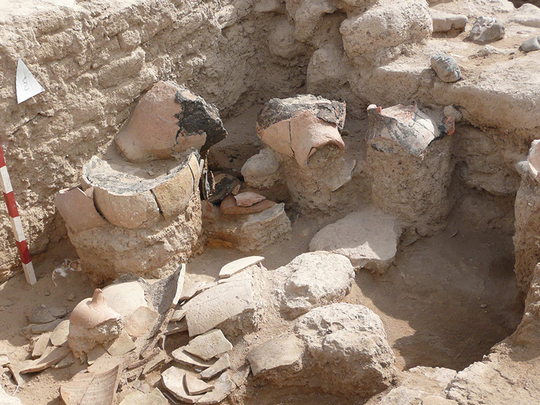
Abu Dhabi: Members of the Federal National Council (FNC) passed on Wednesday a draft federal law to protect monuments and artefacts and stop looting or trade of unique treasures across all emirates.
The new legislation states that owners of antiquities must report them to local authorities and register them within two years from the date the bill takes effect.
The draft law, which requires to be endorsed into law by President His Highness Shaikh Khalifa Bin Zayed Al Nahyan, says that once discovered, antiquities must be reported to the authorities concerned or the nearest police station within 24 hours.
The bill states that a buffer zone must be set up around archaeological sites.
It would prohibit individuals from selling or defacing historical buildings and documents because they belong to the history and culture of the country — anyone who defaces or destroys an antiquity could face up to a minimum of two years in jail and Dh10 million in fines.
Under the draft law, fines of up to Dh10 million and jail time will be handed down to anyone found guilty of destroying, damaging or distorting antiquities.
Offences such as building, planting or changing the characteristics of an archaeological site, making archaeological excavations without a permit, smuggling antiquities into or out of the country, or replicating a national or foreign antiquity to scam others will be punishable with the same penalties.
Those who violate licensing conditions for digs, or take, transfer or use archaeological ruins or stones without a licence face jail time or fines ranging between Dh100,000 and Dh300,000 or both.
The bill suggests that rewards be given to residents who discover or report antiquities.
The UAE’s national e-registry for antiquities, the first of its kind in the region, was launched early this year.
Members of the House said that the registry is one of the most important civilisational projects in the UAE and it is very significant for the nation’s future and for safeguarding its cultural legacy.
The registry aims to protect antiquities, provide reliable information to researchers, learners, tourists and executive authorities tasked with protecting national treasures, such as axes which date back 120,000 years.
It serves as a national data base that incorporates 3,100 pieces of diverse antiquities from all emirates and basic information on each piece in terms of size, weight, measure, original material, place and date of discovery, discoverer of the artefact, its condition and image of the artefact.
Experts expect to have 4,000 antiquities by the end of the current year and 10,000 in the years to come.
The FNC demanded that the National Council of Tourism and Antiquities and other authorities concerned train citizens in excavation and protection of antiquities.










